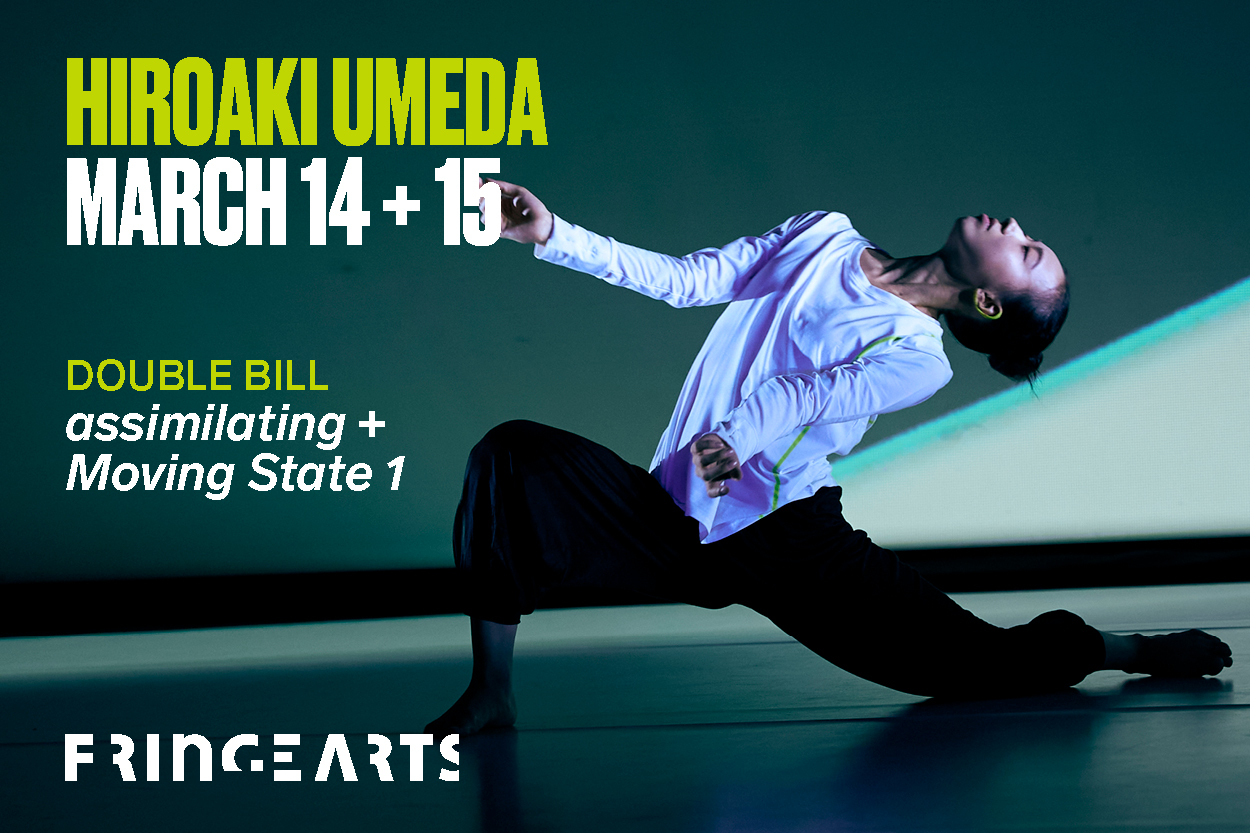Theatre Philadelphia and thINKingDANCE continue our partnership, begun in 2018, bringing coverage and new perspectives to Philadelphia’s vibrant theatre scene.
A quick internet search reveals that there are more than fifty screen adaptations of Shakespeare’s Hamlet. Did we really need another one?
Yes, we did.
Fat Ham, written by Philadelphia-based playwright and Wilma Theater co-artistic director James Ijames, follows Juicy, our modern-day Hamlet, on the day his mother marries his uncle. Before the celebration begins, Juicy sees the ghost of his father, who wants him to seek vengeance by murdering his uncle. The similarities to the source material stop there. As the play progresses, it cuts away the overdone exterior of the classic, revealing a meaty interior worthy of the play’s Southern cookout setting.
Directed by Morgan Green, a fellow Wilma co-artistic director, the production was filmed on set in Virginia to comply with COVID-19 safety regulations. Instead of on a stage, the action takes place in a backyard with a raised deck and expansive lawn, which are decorated with rainbow and floral streamers for the wedding’s barbecue celebration (courtesy of production designer Sara Brown). As the actors move between the different areas of the set, the camera follows in long takes designed to mimic the experience of watching live performance (film and editing by Leslie Rivera and assisted by Taj Rauch).
The play’s hero, Juicy, is an introspective yet magnetic young man. His mom calls him “thicc,” with its gender and physical body associations. The other characters frequently call him “soft,” either to compliment his sensitivity or dig at his sexuality. The poles of his character are navigated dexterously by Brennen S. Malone who croons Shakespearean soliloquies directly into the camera just as casually as he quips with his friends. When Pap (an imposing figure played by Lindsay Smiling) appears and asks Juicy to murder his uncle Rev (a sinister figure also played by Smiling), Juicy’s response is humorous and biting. He talks back, emphasizing the absurdity of the request with an incredulous, “Why?”
Why must Juicy kill his father’s killer? Why must murder be avenged with murder? Can the killing be done “metaphorically?” Juicy wonders. His resistance to perpetuate violence launches the story’s central conflict into new territory, making Fat Ham a play in its own right rather than another adaptation. The suspense around whether or not Juicy will kill evolves into a question about how Juicy will choose to live his life.
Assisting—or abating—Juicy’s path to self-discovery are a vibrant set of friends and family. Instead of Horatio, there is the perpetually high and horny Tio (Anthony Martinez-Briggs), who also happens to be the wisest person at the party. He informs Juicy of the intergenerational trauma he carries as a Black man and cautions him against murder. Juicy’s mother, the exuberant Tedra (Kimberly S. Fairbanks), nurtures her son, yet exposes him to toxic masculinity through her choice of husbands. Laertes and Ophelia, here, are Juicy’s childhood friends Larry (Brandon J. Pierce), a reserved military man, and Opal (Taysha Marie Canales), a frustrated teenager. They sympathize with Juicy, as they hide their own secrets about their sexualities from their mother, Rabby (Jennifer Kidwell).
The characters’ personalities shine in the costumes by Maiko Matsushima. Juicy changes into a “Momma’s boy” shirt and gray scarf after Rev complains he has worn mourning clothes to the wedding. Rev himself dons a sleezy cowboy hat and aviators. Rabby, a traditional woman, looks dressed for the Kentucky Derby in a feathered canary ensemble. Larry’s starched uniform and Opal’s pretty dress confine them.
For Juicy, Larry, and Opal, figuring out how to be themselves is a pained process, but the play’s overall tone is life-affirming. They are, after all, at a party. There’s barbecue waiting—and karaoke.
While Juicy at times quotes long poetic lines from the original Hamlet, he noticeably does not recite “To be, or not to be.” That’s no longer the question. In place of this soliloquy is Tio’s story about virtual reality goggles, gingerbread men, and sex. Bordering comedic gold, existential profundity, and plain nonsense, the monologue is bizarre, yet its message is clear: “choose pleasure over harm.”
At this time, when there is not enough representation, especially positive representation, of BIPOC or LGBTQ characters in entertainment, this focus on joy feels pivotal. The rejection of tragedy within a quintessential Shakespearean tragedy represents a break from old ways—an opening up of new narrative possibilities that make theater not only more inclusive, but also more inventive.
To join the conversation, follow thINKingDANCE and Theatre Philadelphia online and on social media to read, share, and comment.
Fat Ham, The Wilma Theater, streaming April 29-May 23.






